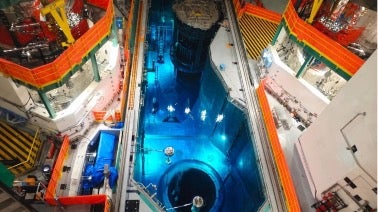Zhangzhou Nuclear Power Plant Advances with Fuel Loading and Construction Milestones
The Zhangzhou Nuclear Power Plant (NPP) in Fujian Province has reached a significant milestone as China’s Ministry of Ecology and Environment granted an operational license for the first unit. This momentous occasion was marked by a ceremony attended by Deputy Minister Dong Bao, who also serves as the Director of the National Nuclear Safety Administration (NNSA). Following‍ this approval, Zhangzhou Nuclear Power commenced the loading of 177 fuel assemblies into its Hualong One reactor core, initiating the commissioning phase.
Progress on Additional Units
In September, construction milestones further advanced when the initial concrete was laid for Unit 4’s nuclear island. Eventually, Zhangzhou NPP is projected to accommodate six Hualong One reactors. The first phase is currently focused on constructing Units 1 and 2. Official permits were issued by China’s Ministry of Ecology & Environment in 2019 to CNNC-Guodian Zhangzhou Energy Company—established in 2011 and owned predominantly by CNNC (51%) alongside China Guodian Corporation (49%). These licenses are valid for a decade.
Units 1 and 2 commenced construction in October 2019 and September 2020 respectively, with plans for them to achieve commercial operation between late 2024 and early 2025. Earlier this year saw the pouring of concrete for Unit 3—the first among two additional Hualong One reactors anticipated during Phase II of development—with two more such units proposed for Phase III.
Transition from AP1000 to HPR1000 Design
The journey toward establishing the Zhangzhou plant began back in May 2014 when local authorities approved what was initially envisioned as a complex featuring two Westinghouse AP1000 units. The NNSA provided its endorsement later that year while confirming site suitability in October 2016. Although ground-breaking was originally slated for May of that year, CNNC shifted course after assessing project specifications, ultimately deciding to implement their indigenous HPR1000 (Hualong One) design instead.
This strategic pivot led to groundbreaking activities commencing with Unit A—Zhangzhou’s first—in October of last year followed shortly after by Unit B’s groundwork starting September following it; both are positioned strategically towards meeting operational readiness timelines set for mid-decade.
